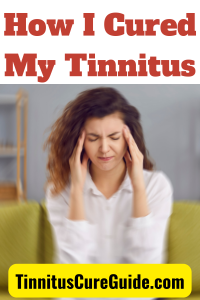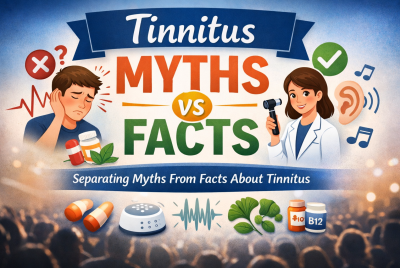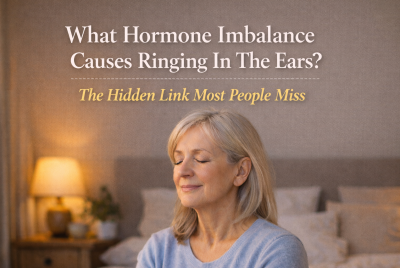How I Cured My Tinnitus
My Experience With Tinnitus
Discover the inspiring journey of How I cured my tinnitus with an aggressive treatment approach. Living with tinnitus can be a challenging and frustrating experience. As someone passionate about hearing health and eager to provide helpful suggestions, I understand the impact it can have on one’s quality of life. The constant ringing or buzzing in the ears can disrupt sleep, concentration, and overall well-being. However, my research has discovered effective strategies and remedies significantly alleviate tinnitus symptoms. In this “How I cured my tinnitus” article, I will share my experiences and provide valuable suggestions to help you manage and potentially overcome tinnitus.
Understanding Tinnitus
Tinnitus is a condition characterized by the perception of sound in the ears or head without any external source. It is often described as ringing, buzzing, hissing, or roaring sounds. Tinnitus can vary in intensity and may be temporary or persistent. While it is not a disease itself, tinnitus is commonly a symptom of an underlying issue, such as hearing loss, exposure to loud noise, or certain medical conditions.
What Is Tinnitus?
Tinnitus is a subjective sensation of noise that is not present in the environment. It can affect one or both ears and may be continuous or intermittent. The exact mechanisms behind tinnitus are not fully understood, but it is believed to involve abnormal activity in the auditory system.
Has Anyone Ever Cured Their Tinnitus?
Some individuals have reported a complete resolution of tinnitus, but a definitive cure that universally works for everyone remains elusive. Tinnitus can arise from various underlying causes, making it challenging to find a one-size-fits-all solution. Many people manage and reduce their tinnitus symptoms through various treatments and lifestyle adjustments, but the effectiveness varies from person to person. Research is ongoing, and advancements are being made in understanding and treating tinnitus, offering hope for better management and potential cures in the future.
Types Of Tinnitus
Tinnitus can be classified into two main types: subjective and objective. Subjective tinnitus is the most common type and is only audible to the affected individual. On the other hand, objective tinnitus can be heard by both the person experiencing it and others. Objective tinnitus is relatively rare and often caused by vascular or muscular issues.
Impact Of Tinnitus On Life
Living with tinnitus can significantly impact a person’s life. The constant presence of sound can lead to sleep disturbances, difficulty concentrating, increased stress levels, and even emotional distress. Addressing tinnitus and finding effective ways to manage its symptoms is crucial.
Causes Of Tinnitus
Understanding the underlying causes of tinnitus is essential in finding the right treatment approach. Here are some common causes of tinnitus:
Exposure To Loud Noise
Prolonged exposure to loud noises, such as attending concerts or working in noisy environments, can damage the delicate structures of the inner ear and lead to tinnitus. Protecting your ears from loud noise is crucial in preventing tinnitus and preserving your hearing health.
Age-Related Hearing Loss
Age-related hearing loss, known as presbycusis, is a natural decline in hearing abilities as we age. Tinnitus often accompanies age-related hearing loss and can be managed through various interventions.
Earwax Blockage
Excessive earwax accumulation can cause tinnitus by blocking the ear canal and affecting sound conduction. Cleaning the ears regularly and seeking professional assistance in removing stubborn earwax can help alleviate tinnitus symptoms.
Seeking Professional Help
When experiencing tinnitus, it is essential to consult a healthcare professional specializing in hearing health. They can accurately diagnose the underlying cause of your tinnitus and recommend suitable treatment options. Here’s why seeking professional help is crucial:
Importance Of Consulting A Doctor
Consulting a doctor or an audiologist is vital in determining the exact cause of your tinnitus. They can conduct a comprehensive evaluation of your hearing and provide personalized recommendations for managing your symptoms effectively.
Diagnosing Tinnitus
To diagnose tinnitus, healthcare professionals will consider your medical history, conduct a physical examination, and may perform additional tests such as audiograms, imaging scans, or blood tests. This thorough evaluation helps in understanding the nature and potential causes of your tinnitus.
Treatment Options
Based on the diagnosis, healthcare professionals can recommend suitable treatment options tailored to your specific needs. Treatment approaches for tinnitus may include a combination of medical interventions, natural remedies, and lifestyle modifications.
Natural Remedies For Tinnitus
In addition to medical treatments, several natural remedies can complement your tinnitus management strategies. These remedies focus on lifestyle changes, dietary modifications, sound therapy, and stress management techniques.
Lifestyle Changes
Making positive lifestyle changes can have a significant impact on managing tinnitus. Here are some beneficial lifestyle adjustments:
- Reduce exposure to loud noises: Limit your exposure to loud environments and wear ear protection when necessary.
- Avoid ototoxic substances: Some medications and substances, such as certain antibiotics and excessive caffeine, can worsen tinnitus symptoms.
- Practice stress reduction: Engage in stress-reducing activities like meditation, yoga, or deep breathing exercises to minimize tinnitus-related stress.
Dietary Modifications
Certain dietary modifications may help reduce tinnitus symptoms. Consider the following:
- Limit caffeine and alcohol: Both caffeine and alcohol can exacerbate tinnitus. Reduce your intake or avoid them altogether.
- Consume a balanced diet: A healthy diet rich in fruits, vegetables, whole grains, and lean proteins can promote overall well-being and potentially alleviate tinnitus symptoms.
- Stay hydrated: Proper hydration can support the optimal functioning of the auditory system.
Sound Therapy
Sound therapy is a widely used technique for managing tinnitus. It involves the use of external sounds to distract or mask the perception of tinnitus. Some popular sound therapy methods include:
- White noise machines: These devices produce a soothing background noise that helps mask the tinnitus sounds.
- Sound masking apps: Various smartphone apps provide a wide range of sounds, such as nature sounds or gentle melodies, to help divert attention from tinnitus.
- Hearing aids with tinnitus masking: Certain hearing aids are equipped with built-in tinnitus masking features that amplify external sounds while reducing the perception of tinnitus.
Stress Management
Stress can exacerbate tinnitus symptoms. Implementing effective stress management techniques can contribute to better tinnitus management. Consider the following practices:
- Regular exercise: Engaging in physical activity can help reduce stress levels and improve overall well-being.
- Relaxation techniques: Explore relaxation techniques such as deep breathing exercises, progressive muscle relaxation, or mindfulness meditation to alleviate stress and promote relaxation.
Medical Treatments For Tinnitus
In some cases, medical interventions may be necessary to manage tinnitus effectively. Here are some common medical treatments for tinnitus:
Medications
Certain medications, such as antidepressants, antianxiety drugs, or even some off-label medications, can be prescribed to alleviate tinnitus symptoms. However, medication effectiveness varies from person to person, and potential side effects should be considered.
Hearing Aids
Hearing aids are often recommended for individuals with both hearing loss and tinnitus. These devices amplify external sounds, making them more audible and reducing the contrast between environmental sounds and tinnitus.
Tinnitus Retraining Therapy
Tinnitus Retraining Therapy (TRT) is a specialized treatment approach that combines sound therapy with counseling. TRT aims to retrain the brain’s response to tinnitus, reducing the perception of the sound and its associated distress.
Signs That Tinnitus Is Going Away
Recognizing signs that tinnitus is fading can be both encouraging and reassuring. One noticeable indication is a decrease in the intensity and frequency of the ringing or buzzing sensation in the ears. You may also notice longer periods of silence, where the tinnitus is not as prominent or completely absent. Improved concentration, reduced stress levels, and better sleep quality are common positive changes as well. Additionally, if your ability to hear external sounds improves, it could indicate that the tinnitus is subsiding. However, it’s essential to remember that everyone’s journey is unique and sudden changes should be discussed with a healthcare professional to ensure proper evaluation and management of the condition.
What Helps Tinnitus Go Away Naturally?
While tinnitus can be persistent, some natural remedies may provide relief. Managing stress through relaxation techniques like yoga or meditation can be beneficial, as stress often worsens tinnitus. Regular exercise and maintaining a healthy diet can improve blood flow to the ears, potentially reducing symptoms. Sound therapy, such as white noise or soothing background sounds, may mask the ringing and make it less noticeable. Avoiding loud noises and protecting the ears from excessive noise exposure can prevent further damage. Additionally, some individuals find relief from herbal supplements like ginkgo biloba, magnesium, and zinc, but it’s essential to consult a healthcare professional before trying any new remedies.
My Tinnitus Suddenly Stopped
One miraculous day, my tinnitus unexpectedly vanished, leaving me in awe and disbelief. After enduring the persistent ringing for so long, the sudden silence felt surreal. I couldn’t pinpoint a specific reason for its disappearance; it simply vanished. Gratitude overwhelmed me as I embraced the newfound tranquility. While I still remain vigilant about my health, this inexplicable cessation of tinnitus has been a life-changing blessing, allowing me to appreciate the beauty of silence and savor every moment without the burden of constant noise.
FAQs About How I Cured My Tinnitus
Can tinnitus be completely cured?
Unfortunately, there is no definitive cure for tinnitus. However, many people are able to effectively manage their symptoms and experience significant relief through various treatment approaches.
Can stress make tinnitus worse?
Yes, stress can exacerbate tinnitus symptoms. Finding effective stress management techniques, such as exercise or relaxation exercises, can help minimize the impact of stress on tinnitus.
Are there any specific foods that can worsen tinnitus?
While no direct evidence links specific foods to tinnitus, certain substances like caffeine and alcohol are known to potentially worsen tinnitus symptoms in some individuals. It’s best to observe your own reactions and adjust your diet accordingly.
Can hearing aids really help with tinnitus?
Yes, hearing aids can benefit individuals with hearing loss and tinnitus. By amplifying external sounds, hearing aids can make the tinnitus less noticeable and provide relief.
How long does it take to see results from tinnitus treatments?
The timeline for seeing results from tinnitus treatments varies from person to person. Finding the right combination of treatments that work for you may take some time and experimentation. Patience and regular follow-up with your healthcare professional are crucial in tinnitus management.
How I Cured My Tinnitus – Conclusion
Cured tinnitus and living with ear ringing can be challenging, but it is essential to remember that various management strategies are available. You can effectively manage and potentially alleviate your tinnitus symptoms by seeking professional help, implementing natural remedies, and considering medical treatments when necessary. Remember, each individual’s experience with tinnitus is unique, so finding the right combination of strategies may require patience and experimentation.
Disclaimer
This article is for informational purposes only and does not substitute professional medical advice. Always consult a licensed healthcare provider before beginning new treatments, supplements, or exercise programs for tinnitus or related conditions.






